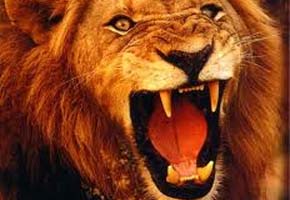Things that have happened on 25 December
William the Conqueror had an eventful Christmas Day. Instead of going to church to pray for Jesus Christ, he was crowned King of England at Westminster Abbey after he and his Norman army defeated Harold II and the Anglo Saxons at the Battle of Hastings weeks earlier.
2. World War I ceasefire (25 December 1914)
Both the British and German armies along the Western Front took some time out on Christmas Day after an unofficial truce was made. Instead of battling it out, soldiers exchanged seasonal greetings, sung Christmas Carols and met on No Man’s Land where thousands of men of war even swapped gifts, like food, tobacco and alcohol. It also meant that during the five-day ceasefire, forces could collect the bodies of the war dead from the battle fields. Not everyone respected the truce, however, with some soldiers shot by the opposing side.
3. Isaac Newton born (25 December 1642)
For many the father of modern science, Isaac Newton was born in Woolsthorpe-by-Colsterworth in Lincolnshire on 25 December 1642, three months after the death of his father. It was 24 years later that the famous apple fell in a garden and by the time of his death in 1727 he had advanced every form of mathematics that then existed as well as discovering laws of physics and mathematical techniques that are still taught in schools today.
4. Apollo 8 enters lunar orbit (25 December 1968)
On 25 December while Brits were tucked up in bed waiting for Santa Claus to arrive, Americans were watching a special Christmas Eve broadcast live from the Apollo 8 spacecraft — it became the most-watched television broadcast.
On the first manned mission to the moon, Command Module Pilot Jim Lovell said: “The vast loneliness is awe-inspiring and it makes you realise just what you have back there on Earth.” While viewers saw a grainy black and white photo of the moon, Lovell along with Bill Anders and Frank Borman ended the broadcast by taking turns reading from the book of Genesis.
5. Tropical cyclone Tracy (25 December 1974)
One of the most devastating cyclones in Australian history hit the country on Christmas Day claiming 64 lives in total. Tracy was first detected as a depression in the Arafura Sea on 20 December before it moved slowly southwest and intensified, passing close to Bathurst Island on the 23rd and 24th.
Early Christmas Day, it headed straight for Darwin where it struck the city in the early morning. Warnings were issued, but — perhaps because it was Christmas Eve and people were complacent — many residents were caught unprepared. The effects were catastrophic as infrastructure in the city was left destroyed or badly damaged — costing many million Australian dollars to repair.
6. Death of Charlie Chaplin (25 December 1977)
One of the best-loved actors in the history of film died peacefully in his sleep on Christmas Day at his estate in Corsier-sur-Vevey, Switzerland aged 88. Born on 16 April 1889 in south London, he went onto become one of Hollywood’s most famous figures — noted for his performances in comic silent films. Sir Charles — who was knighted by Queen Elizabeth in 1975 — died a few hours before his family’s traditional Christmas celebration was to begin.
7. Scientists achieve coldest temperature (25 December 1989)
For a team of Japanese scientists in 1989, Christmas Day was just another work day as they achieved the coldest temperature ever recorded — a chilly -271.8C.
8. First trial run of the World Wide Web (25 December 1990)
The reason you are reading this article now is because on Christmas Day 21 years ago, computer scientists completed the first successful trial run of a system that consisted of only two computers and a single server — which would eventually become the World Wide Web.
9. Mikhail Gorbachev resigns (25 December 1991)
It was a momentous 25 December for the former countries of the Soviet Union and a sad day for Mikhail Gorbachev who had lost his popularity to rival Boris Yeltsin and with Ukraine and the Baltic states declaring themselves independent, he addressed the broken Soviet Union in a 10-minute TV broadcast. Gorbachev resigned after seven years in office and the Soviet Union was formally dissolved the following day. Two days after Gorbachev resigned, Yeltsin moved into Gorbachev’s old office. — Yahoo.










Comments